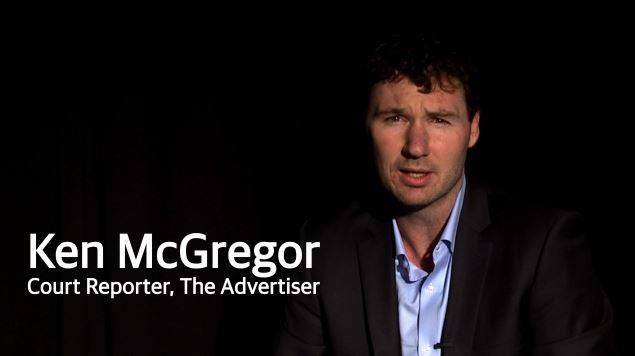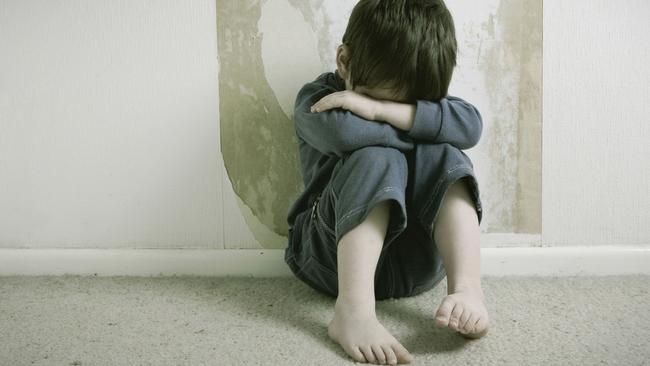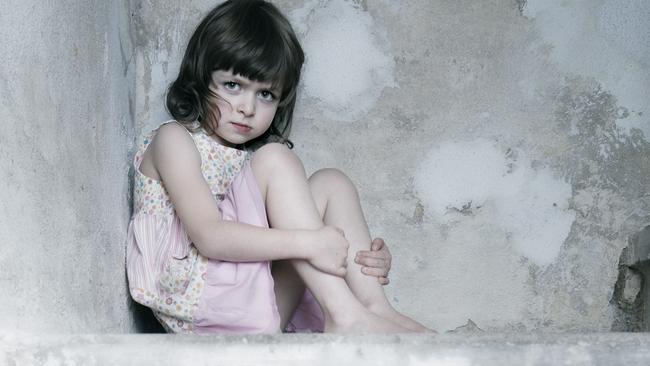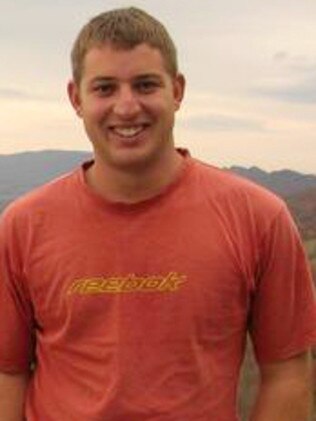Shocking truths of child abuse from sorry chapter in South Australia’s history
THE Nyland royal commission findings into State Government responses to child abuse are made public today. Nigel Hunt and Lauren Novak have led the coverage on this sorry chapter in the state’s history.

Opinion
Don't miss out on the headlines from Opinion. Followed categories will be added to My News.
THE Nyland royal commission findings into State Government responses to child abuse are made public today. Advertiser reporters NIGEL HUNTand LAUREN NOVAK have led the coverage on this sorry chapter in the state’s history.
Behind the harrowing scenes
By Nigel Hunt
IT was, perhaps, the most distressing interview of literally dozens conducted while investigating the Shannon McCoole scandal.
With her voice crackling, tears streamed down the cheeks of the young mother as she struggled to contain her anger. She had just days before been told her child was one of McCoole’s seven victims.
But she already knew. She had known for two years, unable to convince Families SA of her suspicions. When her daughter started displaying sexualised behaviour she reported her fears, but astonishingly she was brushed off and simply told she was “a paranoid mother’’.
Sadly, her first contact with Families SA in mid-2012 typifies what we now know were repeated failings to act on the glaring warning signs of deviant Shannon McCoole’s activities.
It was a year before his co-workers formally complained about his behaviour and crucially, two years before his eventual arrest in June 2014 following a painstaking police investigation.
There were perhaps just a handful of key players who knew the full, explosive background story when the Government decided to tell the public of McCoole’s arrest a month later.
In the ensuing days as I gathered information for the initial story revealing the full extent of the scandal, those privy bunkered down and prepared.
A measure of the panic that had enveloped the government as it realised the gravity of the situation it was facing emerged at a press conference called the day The Advertiser revealed McCoole had slipped through the net when initial concerns about his behaviour were not adequately investigated.

After 10 minutes of deflecting questions from journalists eager to shine more sunlight on just what had occurred, Premier Jay Weatherill boldly told those firing questions at him: “you can’t assume the truth of today’s report.’’
It was an astonishing comment, perhaps even a desperate comment, made to instil doubt in the mind of the journalists covering the story to dissuade them from following the same line. The tactic didn’t work. In fact, it probably had the opposite effect.
The accuracy of the story was reinforced the next day when I revealed more details of the inept investigation into the first report concerning McCoole’s behaviour and even detailed a vital fact surrounding his initial screening that should have prevented his employment if it had been acted upon.
As is often the case, timid whistleblowers become emboldened when they see others speaking out. They are also angered when they see information being deliberately kept from the public.
It was this fact that prompted many to breaks ranks and speak to me. Fearful of reprisals, they requested clandestine after hours meetings, some in odd places.
Like the young mother, many were in tears as they recounted their experiences and what they knew of McCoole and how Families SA supervisors had bungled complaints about his behaviour and how others had even covered up for him.
Their determination to speak out gave The Advertiser the ability to inform the public how a broken system allowed a paedophile to flourish and prey on our most vulnerable children.
On several occasions these reports were met with anger by exasperated Ministers, senior bureaucrats and minders. Expletive-laden late night phone calls often followed.
With some their concerns appeared not be over the actual event, but the incendiary political fallout that would follow each story.
Now that the finer detail of this sorry, sorry saga has finally been unpacked in its minutia, it is worth noting that the Government’s steadfast defence for refusing to release the detail The Advertiser did to inform the public of the failings within Families SA was not a defence at all.
It claimed that even confirming The Advertiser’s many factual reports would prejudice McCoole’s trial and impact the work of the Royal Commission.
Neither occurred. Not once during either proceedings was The Advertiser’s probing coverage called into question.
In fact, public hearings in both proceedings have confirmed each aspect of The Advertiser’s reports — a stark contrast to the Premier’s response when we first revealed the true scope of the scandal.

State has a responsibility to the children
By Lauren Novak
WHEN I heard the news of Shannon McCoole’s arrest, my first thought was “Not again?”
Not so long ago I had been consumed by covering the Debelle royal commission into sexual abuse of children in our schools and I couldn’t bear the thought that we were about to go through it all again.
The Premier’s language as he told us of McCoole’s heinous crimes two years ago warned us we were in for revelations which would prompt a complete rewrite of child protection as we knew it.
Now we’ll find out if that’s the case. The Nyland royal commission, to be made public today, was sparked by McCoole, but it is about so much more.
The breadth and depth of issues that need to be addressed in the way we handle child protection goes far beyond the devastation caused by one hideous man.
There’s a countless number of victims of this state’s system, each with their own heartbreaking story.
I’ve listened as frustrated grandmothers have burst into tears on the end of the phone line because they — and the system — could not keep their grandchildren safe.
I’ve rested my hand on the knee of parents in their lounge room as they revealed how their teenager had contemplated suicide, forcing them to move all sharp objects in the house into a box in a high cupboard.

I’ve lobbied on behalf of a mother who was asked to pay for a copy of a report into her own son’s rape.
I’ve attended funerals of children taken too soon and spent nights on my way home from work thinking about teenagers who believed suicide was their only option.
Much of what I have heard is too graphic to print.
Sometimes, as a reporter, you can separate yourself from what you’re told, but hearing about the sickening abuse of one young girl brought me to the point of vomiting.
I’ve broken down on occasions after covering cases that lodged themselves under my skin.
I am constantly amazed at — and grateful for — the willingness of people to share these stories with me.
They bare their most painful and shameful moments to a complete stranger and the responsibility that comes with that is not lost on me.
They often do it because, as humans, it helps to talk.
But they also do it because they expect that by talking to the media they can get something changed.
There have been improvements.
Families SA is reporting monthly updates on information which I have previously spent months chasing.
Some requests are denied, but more often they are delayed — for weeks and months at a time.
Many of the front page stories which exposed problems took months to get to print.
Today, a deluge of information will be unleashed through former Justice Nyland’s report.
I hope it encourages more transparency. To fix a problem, we have to know exactly what we’re dealing with.
I hope it shocks the community into realising how bad the problem is.
The state has a responsibility to the kids it takes into its care.
But the reason many of those kids needed saving is because they were living in unsafe homes to begin with.
I hope this report empowers all of us to decide this treatment of children is not OK, to call it out where we see it and to help when we can.
Today feels like the end of a long journey for a lot of people, but it is really only the beginning.


